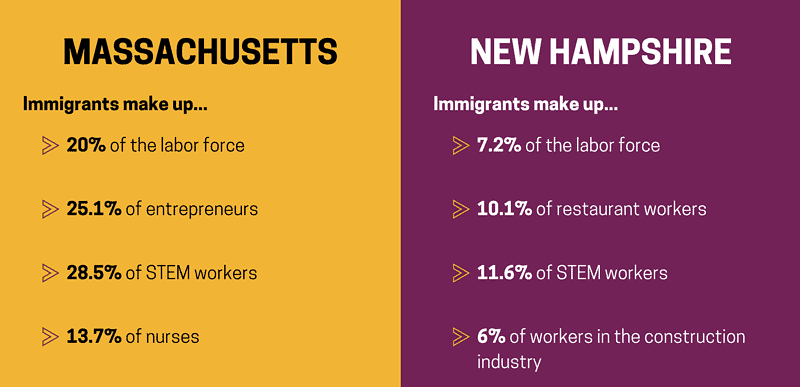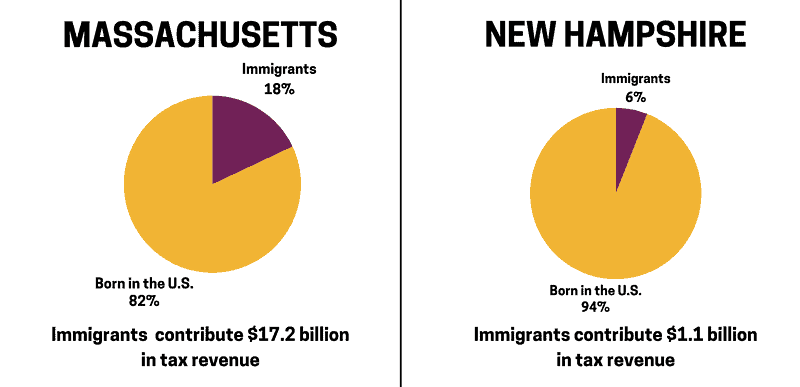By Jeff Thielman, President and CEO at the International Institute of New England

For those of us who feel strongly about advocating for the rights and protections of refugees and immigrants, the reasons we do so are deeply human. Refugees and immigrants endure long and often dangerous journeys to the U.S. because they have no other choice. Reeling from recent trauma and arriving with very few resources and connections, individuals and families show extraordinary bravery and resilience. Welcoming and supporting them is a moral imperative.
However, in addition to the humanitarian reasons, there are clear economic reasons to embrace newcomers. Numerous recent reports have illuminated the critical role refugees and immigrants have historically played in growing our nation’s economy and the contributions they will make in the years to come. Read on to discover why welcoming immigrants to our communities is not only right in principle, but also the smart thing to do…
1. Refugees and immigrants strengthen our workforce by filling much-needed roles in a range of industries.
Nationwide, there are two open positions for every jobseeker – a labor gap that is expected to persist for years, as the economy recovers from the COVID-19 pandemic. The arrival of refugees and immigrants is critical to narrowing this gap. By filling roles in a range of industries, from healthcare to STEM, construction, environmental services, and more, newcomers bring skilled expertise and growth to our labor force.

Source: American Immigration Council
In addition, immigrants are highly entrepreneurial and start businesses at a much higher rate than U.S.–born residents. 22% of entrepreneurs nationwide—3.4 million people—were born outside of the U.S.
2. Immigrants more than pay back the initial support they receive.
While refugees and immigrants receive modest help from the government upon arrival, the economic contributions they go on to make far outweigh that initial support. When I speak with our clients, so often one of the first things they tell me is how eager they are to gain work authorization, find a job, and support their families. And you can see that in the numbers.

A new report found that from 2005-19, refugees and asylees paid more in taxes than the government spent on them. In addition, refugees and asylees who have been in the U.S. for ten or more years earn the same level of income, on average, as the general population, and because a larger portion of this population is of working age, refugees and asylees contribute more per capita than the U.S.–born population.
3. Without new arrivals, the population—and tax base—in many states would shrink.
Take Massachusetts, for example. Since 2020, the state has lost almost 110,000 residents. Out-migration is at its highest peak in 30 years. At the same time, the state’s population is aging, and the birth rate is declining. Meanwhile, just north in New Hampshire, while out-migration may not be a cause of concern, the average age of the state’s population is. As the second oldest state in the country, New Hampshire’s workforce is aging rapidly. Not only is there room in our country for people who arrive here seeking safety, we need them to ensure the growth of our economy.

• • •
Refugees and immigrants come to the U.S. when remaining in their home countries is no longer a viable option – because of fear of persecution, because of war, and because of immense, life-threatening dangers. When they do, in addition to deeply enriching the culture, society, and diversity of the communities they join, they help build a more prosperous future for us all.

However, in order to successfully integrate into their new communities, join the workforce, and reach their potential, refugees and immigrants need adequate early support. The International Institute of New England is dedicated to providing our clients with a strong foundation so they can go on to achieve their dreams and contribute to their new communities.
